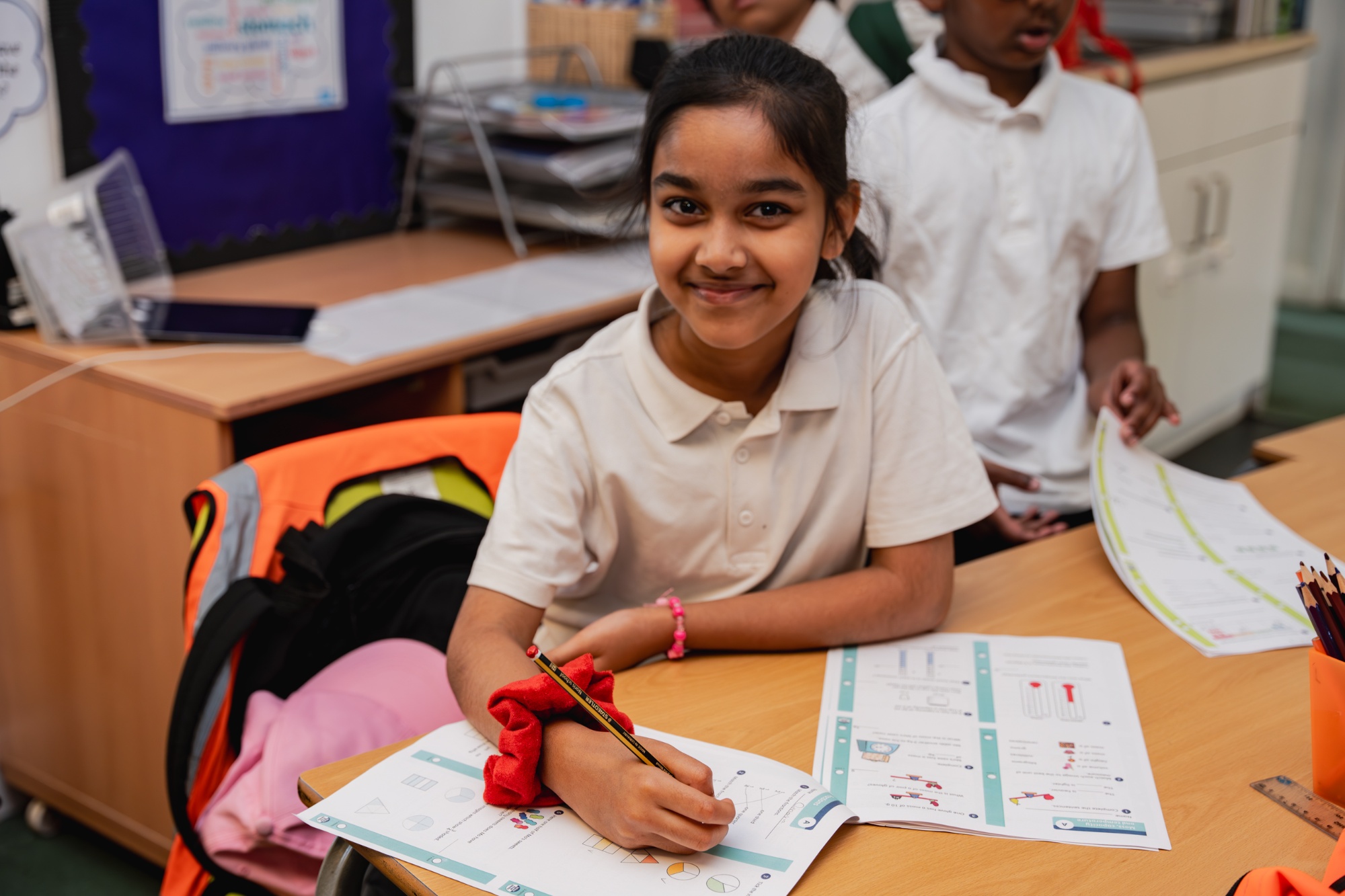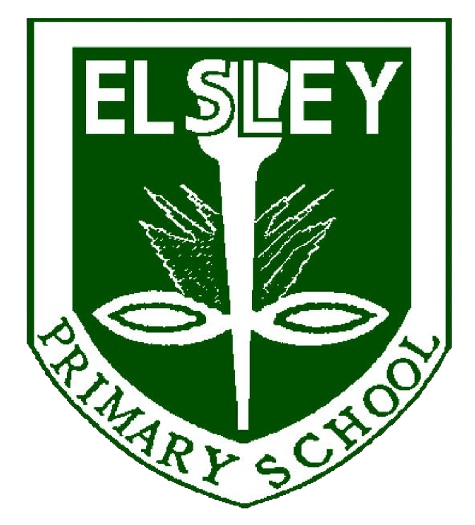Maths
At Elsley Primary School, we are committed to making Mathematics a subject that every child can enjoy and excel in. We believe that Maths is not just about numbers, but about developing logical thinking, problem-solving skills, and a deep understanding of the world around us. Our Maths curriculum is carefully structured to build confidence and competence at every level, from basic arithmetic to complex problem-solving. We are proud of our approach to teaching Maths, which combines traditional techniques with innovative methods to ensure that every student can achieve success.
"Maths is fun because I like to challenge myself to solve puzzles and figure out the answers!"
Intent Statement
At Elsley Primary School, we understand that mathematics is a highly creative and interconnected discipline that has been developed over centuries, providing the solution to some of history’s most intriguing problems. We aim for our pupils to value the essential role that mathematics plays in everyday life, understand its critical role in science, technology, engineering and its necessity for financial literacy and employment. At Elsley Primary School, we aim to offer a high-quality Mathematics education that provides our pupils with the foundations for understanding the world and for finding their place and voice in it. As students discover patterns, structures and mathematical relationships through opportunities to deepen conceptual understanding and ‘intelligent practice’, we aim for our pupils to become inquisitive, confident, competent and resilient mathematicians who are able to grapple with mathematical problems both individually and collaboratively.
We aim to offer our pupils with not just maths lessons but experiences where pupils do not just ‘do’ maths but experience what it is like to be a mathematician; analysing a situation, reasoning what mathematics to apply, evaluating their progress towards finding a solution and being confident to adjust their approach during the process through mathematical discussion.
Our Mathematics curriculum aims to be inclusive for all, through the range of mediums by which pupils have to demonstrate their acquisition of mathematical knowledge, skills and understanding. We also aim for our pupils to realise the diversity of mathematicians in society and appreciate the contributions that many cultures have made to this discipline. Through the study of local, national and international mathematicians from across the world during their time at Elsley, we expect that our pupils will be inspired to see that they themselves can become Mathematicians in the future
Implementation Statement
At Elsley primary, we have a cyclical mathematics curriculum design where the skills, knowledge and understanding pupils acquire are carefully sequenced so that they build upon each other. Learning objectives are posed in the form of a question, based on the skill that pupils are learning to acquire and/or apply. Learning within each lesson is chunked into small steps in order to reduce cognitive overload and teacher modelling draws upon the ‘I do’, ‘we do’ ‘they do’, ‘you do’ model to learning as a means of: helping all pupils to master their learning, nurturing self-efficacy and reducing task anxiety through scaffolded opportunities to practise. We use the Concrete, Pictorial, Abstract (CPA) approach to support our pupils understand mathematical concepts and make connections between a variety of representations. This approach to mathematical teaching in turn provides an in road for our pupils to be able to solve mathematical problems and become proficient in reasoning. Emphasis is placed on mathematical language and questioning which fosters mathematical discussion and in turn aids pupil understanding and retention. Pupils are explicitly taught problem solving strategies to support them to make sense of unfamiliar situations and pupils are encouraged to draw upon their existing knowledge. Our pupils also learn how to be flexible in their approach to mathematical learning, as they are taught to compare different approaches. Lessons are formulated using high quality resources such as White Rose Maths and NCETM which following a mastery approach.
Mathematics in EYFS
In the Early Years we aim to ensure that our pupils develop firm foundations in Mathematics in an engaging way. Learning at this stage focuses on the Early Years Foundation Stage Framework and follows the interest of our pupils.
There are six key areas of mathematics learning which collectively sets the stage for all that pupils will encounter throughout their primary career and beyond. These are:
- Cardinality and counting (Understanding that the cardinal value of a number refers to the quantity, or ‘howmanyness’ of things it represents)
- Comparison (Understanding that comparing numbers involves knowing which numbers are worth more or less than each other)
- Composition (Understanding that one number can be made up from (composed from) two or more smaller numbers)
- Pattern (Looking for and finding patterns helps children notice and understand mathematical relationships)
- Shape and space (Understanding what happens when shapes move, or combine with other shapes, helps develop wider mathematical thinking)
- Measures (Comparing different aspects such as length, weight and volume, as a preliminary to using units to compare later)
Dedicated time is given to the focus on mathematics daily and this is explored through a variety of contexts i.e. songs, books, games and puzzles both indoors and outdoors. The most is made of every moment throughout the day to highlight and use mathematics, ensuring that pupils use the correct mathematical vocabulary and that opportunities are made to discuss the emerging mathematical ideas of students.
Impact Statement
We take a collaborative approach to the evaluation of the impact of our curriculum where this process is not ‘done to’ our staff, but ‘with them’. In order to judge how successful our curriculum has been designed to promote the learning of the Mathematics National Curriculum, we draw upon a range of assessment and evaluative tools to discover what our pupils know, understand and can do. We utilise both summative and formative assessments which enable us to identify pupil next steps in light of what they already know and are expected to learn. This in turn informs our curriculum design and the nature of our pupils’ learning experiences. We engage in internal and external moderation, pupil voice and book looks to inform pupil assessment and our curriculum evaluation process. We also work in partnership with other schools to collaborate and innovate in order to ensure that our curriculum design successfully meets the needs of our pupils.
We aim for our pupils to:
- Become fluent in the fundamentals of mathematics, including through varied and frequent practice with increasingly complex problems over time, so that pupils develop conceptual understanding and the ability to recall and apply knowledge rapidly and accurately.
- Reason mathematically by following a line of enquiry, conjecturing relationships and generalisations, and developing an argument, justification or proof using mathematical language.
- Solve problems by applying their mathematics to a variety of routine and non-routine problems with increasing sophistication, including breaking down problems into smaller parts.
- Be resilient and persevere in seeking solutions.
- Value both collaborative and independent aspects of the learning process.
- Enjoy learning mathematics and be both confident and competent in their mathematical skills.
- Appreciate the purpose that mathematics has in everyday life and careers.

Useful Websites
Curriculum Help – Step-by-Step Videos to Guide Your Learning
Maths home learning | Home learning | White Rose Education
Year listing | Oak National Academy
Practice Makes Progress – Test Papers for Home Learning
KS1, KS2 Standardised Maths Tests and Primary Maths Assessments Online
Tackle Your Times Tables – Play, Practise, Progress!
Home - Times Tables Rock Stars
Hit the Button - Quick fire maths practise for 6-11 year olds
Multiplication Tables Check - 2025 - Timestables.co.uk

